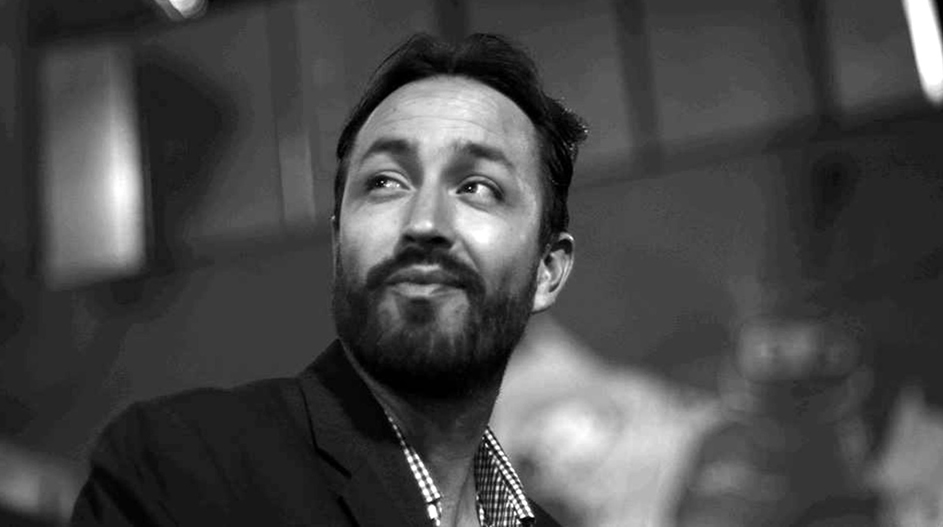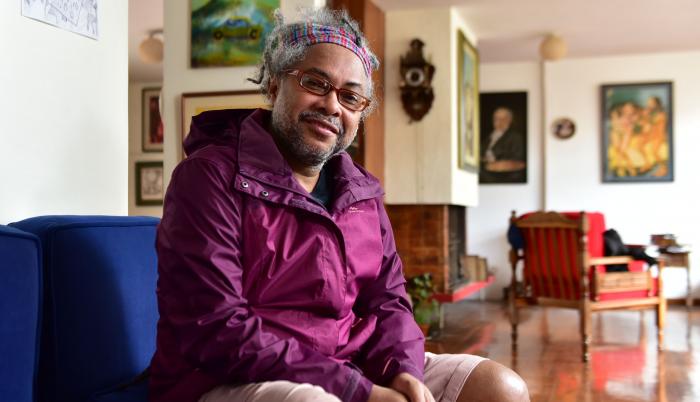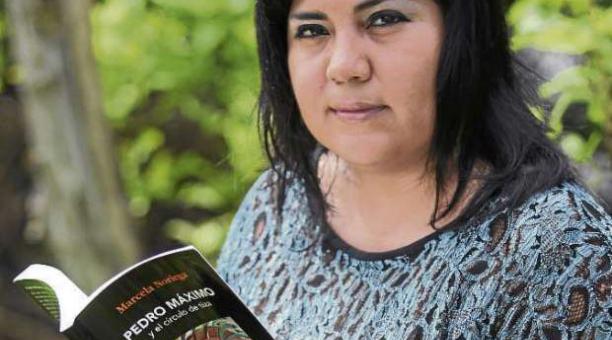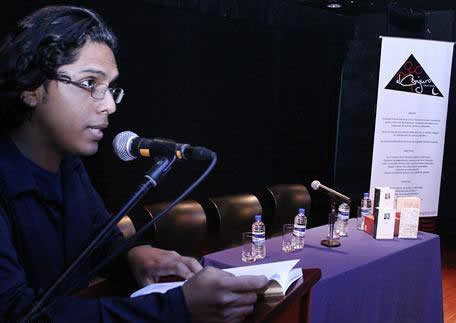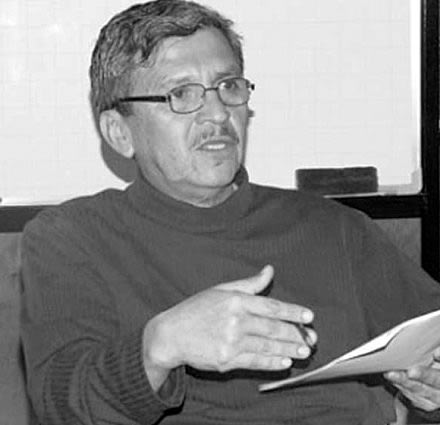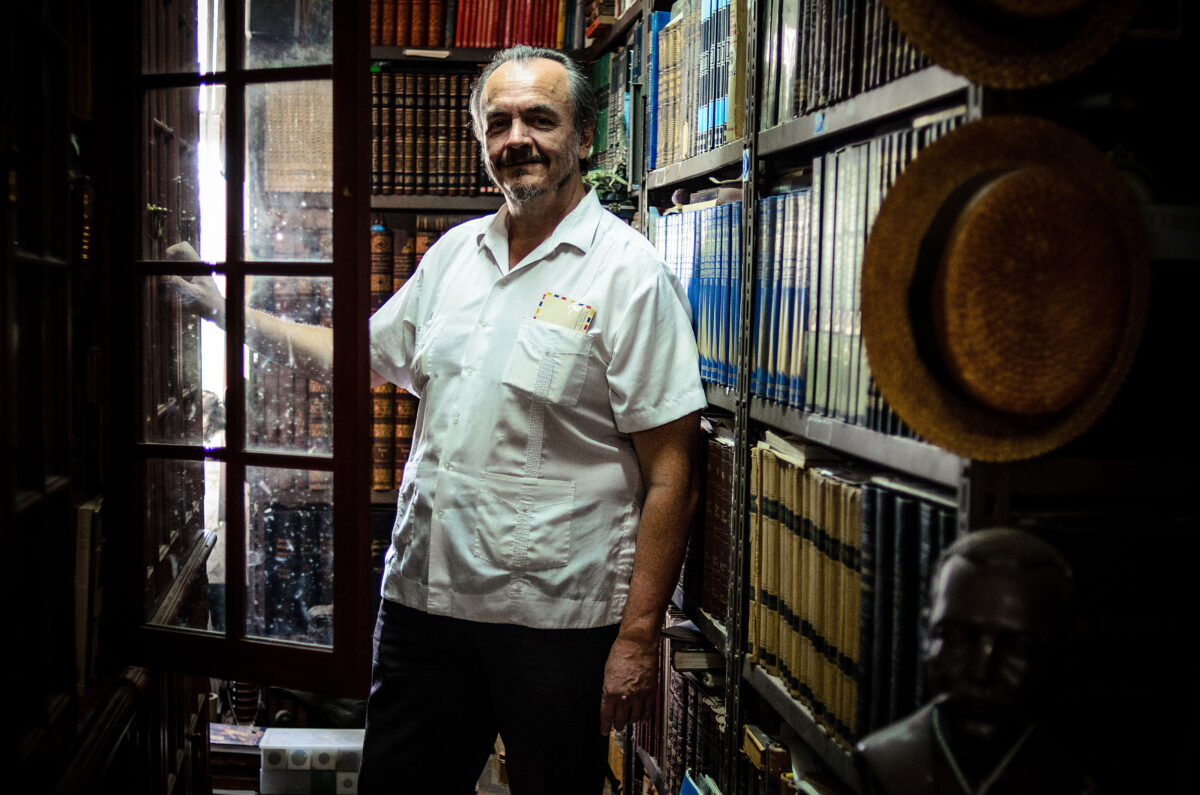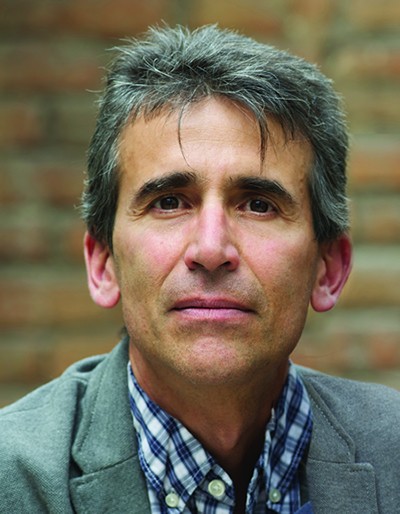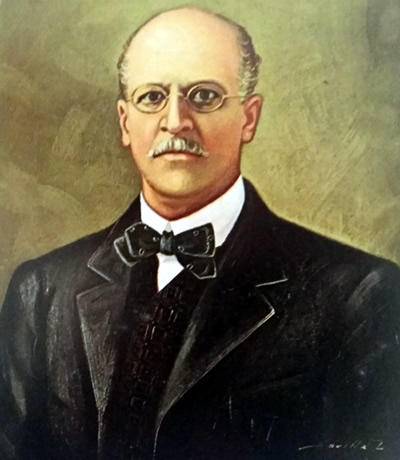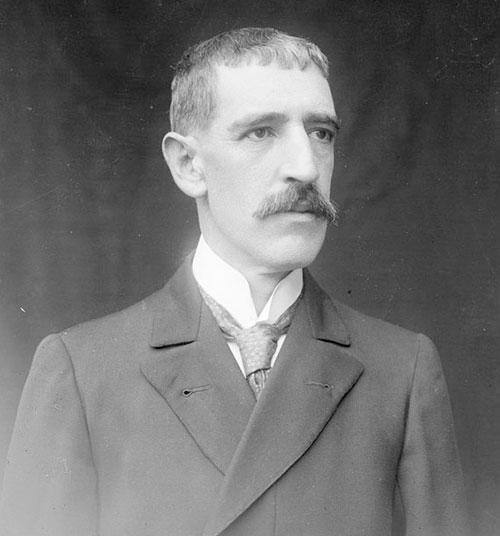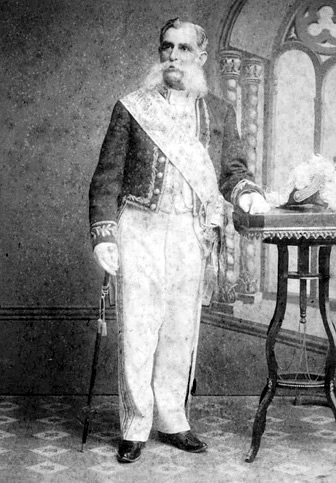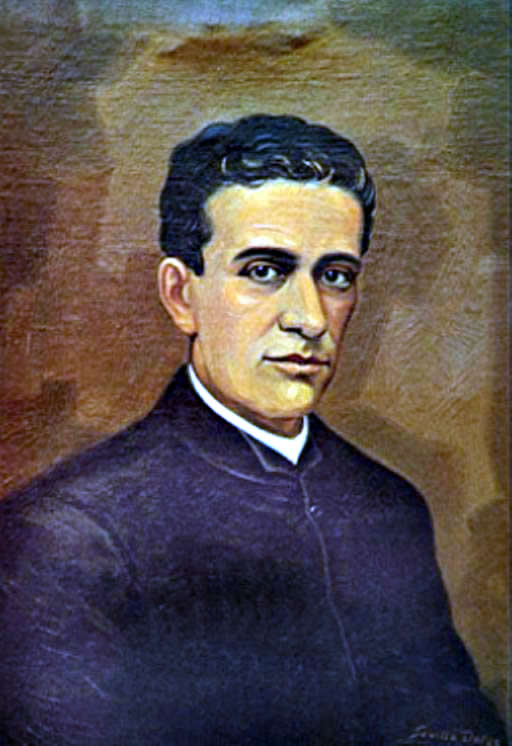Andrés Villalba Becdach is a writer and poet. He was born in Quito in 1981. He studied Social Communication in Quito, journalism in Los Angeles and Latin American literature at Sapienza University of Rome. His books include: Cuaderno Zero (2010), Luigi Stornaiolo: el arte de la digresión (honorable mention in the José Peralta National Journalism Prize, 2010), Obscenidad del vencido (2010), Menos que cero (2011), Muñones (2011), De los acorralados es el reino (2014), Soterramiento (2014), No mueras joven, todavía queda a gente a quien decepcionar (winner of the Jorge Carrera Andrade National Poetry Prize, 2015), Una natural tendencia a la desintegración (fragment, 2017; complete edition, 2018). He also put together the anthology of Ecuadorian poetry Caballo sea la noche.
Continue reading “Andrés Villalba”Month: November 2020
Francisco Santana
Francisco Santana Segura (Guayaquil, 1968) is an Afro-Ecuadorian novelist, short story writer and journalist. He has worked as a writer for the newspapers El Universo and El Telégrafo, and the magazines SoHo and Mundo Diners. His latest novel is La Piel es un Veneno (2020). His genre, often described as “dirty realism,” by critics delves deep into the gritty and unfiltered aspects of life, painting vivid pictures of reality.
Continue reading “Francisco Santana”Marcela Noriega
Marcela Noriega Rodríguez (Guayaquil, 1978) is an Ecuadorian writer, journalist and professor. She is the author of a novel, poetry books, and juvenile and children’s literature. At the age of 19, she won second place at the Biennial of Ecuadorian Poetry in Cuenca and in 2009 she won first place in the same contest with her book No hay que dar voces, published by the University of Cuenca, with support from the Ministry of Culture. She is the author of the novel Pedro Máximo y el círculo de tiza (2012).
Continue reading “Marcela Noriega”César Eduardo Galarza
César Eduardo Galarza (Guayaquil, 1981) is an Ecuadorian poet. From 1999-2007, he was a part of the literary workshop of Miguel Donoso Pareja. He published Polvo fue su piel (2000). He also co-authored Mensaje en una botella (2002) and Madera muerta (2008). In 2008, Galarza received honorable mention in the Ileana Espinel Poetry Contest.
Continue reading “César Eduardo Galarza”Roy Sigüenza
Roy Sigüenza (Portovelo, El Oro Province, Ecuador, 1958) is an Ecuadorian writer and poet. His poetry is homoerotic in theme; he is known for transforming scenes of ordinary life into settings for erotic encounters. Although he has a penchant for brevity and simplicity of language, at times he makes use of greater stylization, while including references to other homosexual writers from both Europe and the United States. Within the Ecuadorian poetic scene, Sigüenza, speaking with a new lyric voice (that of a marginalized and persecuted homosexual), has developed a style that, very quickly, other poets have adopted as a reference point for their own work. One of the few authors in Ecuador willing to write of marginalized sexual experiences in an openly confessional manner, he has gained a certain status as a literary rebel within Ecuador.
Continue reading “Roy Sigüenza”
Melvin Hoyos Galarza
Melvin Hoyos Galarza (Guayaquil, January 9, 1956) is an Ecuadorian writer and historian. He has written various books focused on the history of the city of Guayaquil. He served as the Director of the Municipal Library of Guayaquil from 1992-2000, and is currently the Director of Culture and Promotion of the Municipality of Guayaquil. He is a member of the Ecuadorian National Academy of History.
Continue reading “Melvin Hoyos Galarza”Adolfo Macias Huerta
Adolfo Macias Huerta (Guayaquil, 1960) is a renowned Ecuadorian novelist and psychotherapist. His significant contributions to contemporary literature have earned him critical acclaim and recognition. With works like “El Mitómano” (2018) and “Donde el sol pierde su reino” (2023), Macías Huerta showcases his talent for crafting compelling narratives that explore themes of art, pain, and the complexities of human existence. His ability to create captivating characters and challenge conventional storytelling boundaries has solidified his position as a notable figure in Ecuadorian literature, while his numerous awards, including the Joaquín Gallegos Lara Prize (1995, 2010) and the National Literature Prize (2017), highlight his literary prowess and literary impact.
Continue reading “Adolfo Macias Huerta”César Borja Lavayen
César Borja Lavayen (Quito, February 6, 1851 – Guayaquil, January 31, 1910) was a writer, poet, translator, physician, politician and professor. He was educated at the National University of San Marcos in Lima, Peru. He served as the Deputy of the National Congress of Ecuador, and mayor of Guayaquil (1903-1904). He was a member of the Ecuadorian Academy of Language (since 1901) and in the latter part of his life was the rector of the Central University of Ecuador (since 1908). For political reasons, he lived various years in exile in Costa Rica. On his return to Ecuador, Borja was appointed to various important posts by President Eloy Alfaro.
Continue reading “César Borja Lavayen”Octavio Cordero Palacios
Octavio Cordero Palacios (Santa Rosa, Azuay, May 3, 1870 – December 17, 1930) was a writer, playwright, poet, lawyer, judge, politician, mathematician, translator, teacher and inventor. Among his plays are Gazul (1890), Los Hijos de Atahualpa (1891) and Los Borrachos (1892). Today the town in which he was born bears his name.
Continue reading “Octavio Cordero Palacios”Luis Cordero Crespo
Luis Benjamín Cordero Crespo (Cañar, April 6, 1833 – Cuenca, January 30, 1912) served as the 14th president of Ecuador between July 1, 1892 to April 16, 1895. Cordero began publishing poetry in Spanish and Quechua after his political and legal career, and in 1892 published the first Quicha-Spanish dictionary. In 1904 he wrote the Hymn of Azuay (also referred to as the Hymn of Cuenca) which is still in use today.
Continue reading “Luis Cordero Crespo”Juan Bautista de Aguirre
Father Juan Bautista de Aguirre y Carbo (Daule, Ecuador, April 11, 1725 – Tivoli, Italy, June 15, 1786) was a writer, poet, philisopher, theologian and Jesuit priest from colonial South America. Aguirre wrote poems of varying topics, including religious, moral, and love poems. Aguirre taught in Quito at the San Gregorio Magno University until the Jesuits were expelled from Spanish America in 1767. On August 20 of that year he left South America from Guayaquil bound for Faenza, Italy, where the Jesuits of Quito had taken refuge. Once in Italy, Aguirre was the superior of the Jesuit convent school in Ravenna and rector of the college in Ferrara. After the Order of the Jesuits was terminated by Pope Clement XIV in 1773, he settled in Rome under the papacy of Pope Pius VI. He was a friend of the bishop of Tivoli, Monsignor Gregorio Bamaba Chiaramonti, future Pope Pius VII.
Continue reading “Juan Bautista de Aguirre”
